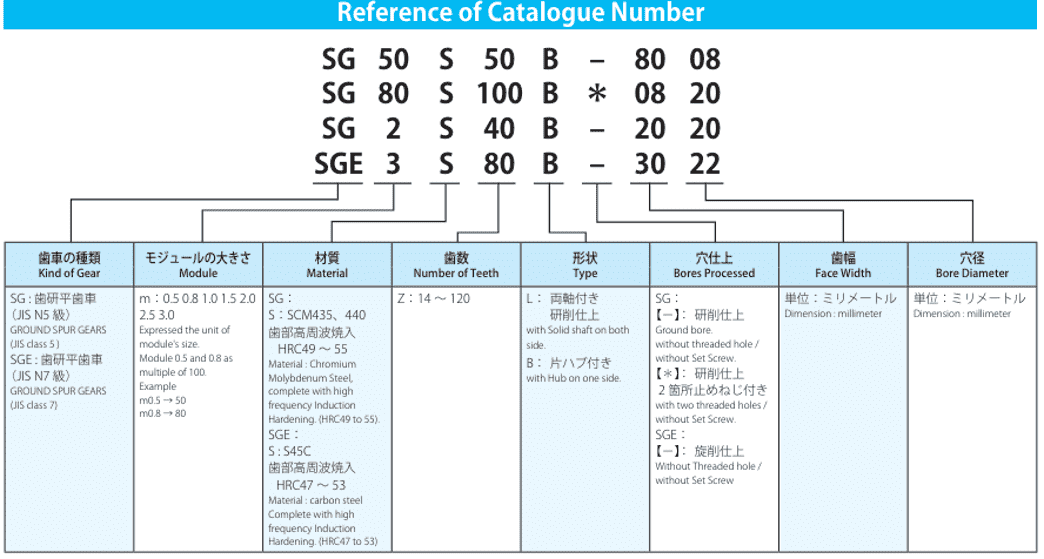Top Considerations When Choosing a Precision Gear Supplier in the USA

Top Considerations When Choosing a Precision Gear Supplier in the USA
When it comes to sourcing precision gears for various industrial applications, selecting the right supplier is crucial for ensuring the success of your operations. Whether you're in the automotive, aerospace, robotics, or any other sector that relies on high-performance gearing systems, the supplier you choose can directly impact the efficiency, reliability, and longevity of your machinery. This article will highlight the top considerations that American buyers should keep in mind when choosing a precision gear supplier, with a special focus on quality standards, customization options, and delivery reliability.
Table of Contents
- Quality Standards: Ensuring High-Precision and Durability
- Customization Capabilities: Meeting Unique Design Specifications
- Delivery Reliability: Timely and Accurate Shipments
- Price Competitiveness: Balancing Cost with Quality
- Conclusion: Building Trust with American Buyers
1. Quality Standards: Ensuring High-Precision and Durability
One of the most critical factors when choosing a precision gear supplier is ensuring that the supplier adheres to high-quality standards. Gears are complex components that must perform reliably under high stress, frequent use, and varying environmental conditions. The right supplier will ensure that their products meet industry-standard certifications, such as ISO 9001 for quality management systems and AGMA (American Gear Manufacturers Association) standards, which ensure that the gears are manufactured to precise tolerances and material specifications.
ISO 9001 Certification
ISO 9001 is a globally recognized standard for quality management, indicating that a supplier consistently meets customer requirements and regulatory standards. When you select a supplier with this certification, you're assured that their processes are efficient and well-documented, reducing the likelihood of defects and inconsistencies in your gears.
AGMA Standards
AGMA sets specific guidelines and standards for gear design, testing, and manufacturing. By choosing a supplier who adheres to AGMA standards, you can be confident that the gears you receive are capable of withstanding high loads, minimizing wear, and ensuring smooth operation over an extended service life. These standards are particularly important in industries such as aerospace and automotive, where safety and reliability are paramount.
Material Quality and Heat Treatment
In addition to adhering to ISO and AGMA standards, a top-tier supplier will source high-quality materials for gear manufacturing, including steel alloys, aluminum, and other advanced materials that can be treated for specific performance needs. Heat treatment processes like carburizing or nitriding are also essential for enhancing the strength and durability of the gears. Be sure to choose a supplier who can demonstrate expertise in these processes to deliver products that meet or exceed your expectations.
2. Customization Capabilities: Meeting Unique Design Specifications
Another vital consideration is whether the supplier offers the ability to customize gears according to your unique design specifications. Off-the-shelf gears may not always meet the precise requirements of your machinery, especially when dealing with specialized equipment or non-standard applications. A reliable precision gear supplier should have the capability to create customized gears tailored to your specific needs.
Tailored Gear Design
Customization allows you to specify critical factors such as gear ratio, tooth profile, material, and surface finish. Whether you're designing gears for an intricate robotic system or for a heavy-duty industrial machine, a supplier that offers tailored gear design services can ensure optimal performance in your application. Suppliers with advanced CAD (Computer-Aided Design) and CAM (Computer-Aided Manufacturing) capabilities can create precise digital models to meet your exact specifications.
Prototyping and Testing
Reputable suppliers should offer prototyping services to test gear designs before committing to large production runs. This can save time and money in the long run, as any potential issues can be identified and corrected early in the development process. Additionally, suppliers who offer robust testing procedures, such as stress testing and load testing, help ensure that the final product will perform reliably in real-world conditions.
3. Delivery Reliability: Timely and Accurate Shipments
For businesses that rely on precision gears for their manufacturing processes, delivery reliability is a key factor when choosing a supplier. Delays in receiving the necessary parts can halt production and lead to costly downtime. A trusted gear supplier must offer not only high-quality products but also timely and accurate delivery to meet your project deadlines.
Lead Times and On-Time Delivery
Discussing lead times up front with potential suppliers is essential. Suppliers who can offer clear timelines and deliver products within agreed-upon windows help maintain your operations' efficiency. It’s essential to ensure that your supplier can meet these deadlines, whether you require a standard batch of gears or a large order with complex specifications. Suppliers with established logistical systems and efficient manufacturing processes are more likely to meet tight deadlines consistently.
Inventory Management and Just-In-Time Delivery
Just-in-time (JIT) delivery is an increasingly popular model for many industries, especially in the automotive and manufacturing sectors. JIT systems help reduce inventory costs and ensure that gears are delivered exactly when they are needed. A supplier who offers JIT delivery options can provide a significant advantage in managing production schedules and reducing excess inventory.
Some suppliers also offer robust inventory management solutions, where they hold a stock of gears that are ready for shipment as soon as an order is placed. This can be especially helpful in emergency situations or when unexpected demand arises.
Communication and Transparency
Communication is vital when it comes to delivery reliability. Choose a supplier that offers excellent customer service and keeps you informed about the status of your order. Whether it’s updating you on production timelines or informing you about potential delays, transparency helps build trust and reduces uncertainties in your supply chain.
4. Price Competitiveness: Balancing Cost with Quality
While quality and reliability are crucial, price remains an important factor for most buyers. That said, it’s essential to understand that the cheapest option may not always be the best. When sourcing precision gears, it’s important to balance cost with the quality of the product. High-quality gears that meet ISO and AGMA standards may cost more upfront, but they will last longer and deliver better performance, ultimately offering better value over time.
Consider whether the supplier’s pricing structure aligns with the quality and customization options they offer. A reputable supplier should provide competitive pricing without compromising on the quality and performance of the gears.
Conclusion: Building Trust with American Buyers
Selecting the right precision gear supplier is an essential decision that impacts the performance, reliability, and longevity of your equipment. By focusing on key factors like adherence to ISO and AGMA standards, the ability to customize gears, and ensuring delivery reliability, American buyers can make informed choices that will foster trust and long-term relationships with their suppliers. Ultimately, choosing a supplier that excels in quality, customer service, and reliability will contribute to the success of your operations, ensuring your machinery runs smoothly for years to come.
Related Products
Here are some relevant facts and statistics that support the key considerations when choosing a precision gear supplier in the USA:
1. Quality Standards (ISO/AGMA)
-
ISO 9001 Certification: Over 1.7 million organizations worldwide are certified under the ISO 9001 standard, demonstrating the global adoption of quality management practices in manufacturing industries. This certification ensures that products meet customer and regulatory requirements and helps reduce operational inefficiencies.
-
AGMA Standards: The AGMA (American Gear Manufacturers Association) has more than 400 member companies across the United States, representing the largest players in the gear manufacturing industry. AGMA sets rigorous standards that are widely accepted and applied in sectors such as automotive, aerospace, and manufacturing.
-
Defects Reduction: Companies that implement ISO 9001 standards have reported an average reduction in defects of up to 20% and improved overall product quality by 15%, according to a study by the International Organization for Standardization.
2. Customization Capabilities
-
Tailored Gear Design: In the precision gear industry, custom gears account for more than 30% of all gear production. Customization allows for specialized applications in sectors like aerospace, robotics, and high-performance machinery, where standard off-the-shelf products might not suffice.
-
Market Demand for Customization: According to a report by Grand View Research, the global custom gears market is expected to grow at a CAGR of 5.7% from 2023 to 2030, indicating a growing trend for bespoke gear solutions across various industries.
-
Prototyping Benefits: Research shows that prototyping and testing can reduce product development costs by as much as 20% and development time by up to 30%, as manufacturers can identify and address potential issues before full-scale production.
3. Delivery Reliability
-
Lead Times and On-Time Delivery: A survey conducted by Statista found that 85% of businesses report that reliable and on-time delivery is one of the top three factors for selecting a supplier. Timely delivery is critical to avoiding production delays and unnecessary inventory costs.
-
Just-In-Time (JIT) Manufacturing: According to Toyota, the pioneers of the Just-In-Time (JIT) system, JIT can reduce inventory costs by up to 50%, improve product flow, and enhance supply chain efficiency, proving the value of reliable and efficient delivery systems.
-
Supply Chain Challenges: A report from DHL stated that 61% of manufacturers are focused on improving their delivery reliability and reducing lead times to meet growing customer demands and reduce costs.
4. Price Competitiveness
-
Global Gear Market Growth: The global gear manufacturing market is projected to grow from USD 27.32 billion in 2023 to USD 40.35 billion by 2030, with a compound annual growth rate (CAGR) of 5.8%. This growth reflects the rising demand for high-quality gears, emphasizing the competitive pricing challenges that suppliers must navigate.
-
Cost of Poor Quality: The American Society for Quality (ASQ) reports that poor quality costs companies in the U.S. nearly $2.1 trillion per year (around 5% of GDP). By investing in high-quality precision gears, companies can reduce these costs associated with defects, warranty claims, and downtime.
5. General Industry Insights
-
U.S. Manufacturing Sector: According to the National Association of Manufacturers (NAM), manufacturing accounts for about 11% of the U.S. GDP, with the machinery manufacturing subsector alone contributing approximately $240 billion annually. This highlights the importance of high-quality precision gears in maintaining the efficiency and competitiveness of U.S. manufacturing.
-
Advanced Manufacturing Trends: The adoption of Industry 4.0 technologies, including automation and advanced robotics, has led to an increase in demand for precision gears that are not only durable but also optimized for high-speed, high-precision applications. A report by McKinsey estimates that advanced manufacturing technologies could add $3.7 trillion to global GDP by 2025, further driving the demand for precision gears.
Incorporating these facts and statistics into your article will help provide credibility and further demonstrate the importance of choosing the right precision gear supplier in the USA. These figures will appeal to readers looking for reliable, data-backed information.


